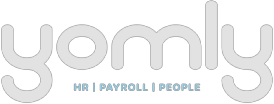The 5 Biggest Benefits Of HRMS
The biggest benefit of having HRMS lies in its transformative impact on managing workforce dynamics efficiently and effectively. Human Resource Management Systems (HRMS) have evolved into essential tools for modern businesses, optimising various HR functions from recruitment to retirement. These systems offer a blend of technology and strategy to address complex HR challenges. This article explores how HRMS revolutionises the field by providing an overview of the biggest benefits.

Optimising The Administrative Process
The administrative aspect of HR is notoriously time-consuming, yet HRMS significantly streamlines these tasks. By automating routine processes like payroll, leave management and employee records, HRMS reduces manual errors and saves valuable time. For instance, our HR software, considered among the top HRMS in Dubai, ensures seamless integration of various HR functions (like reporting and shift scheduling). This optimisation leads to more accurate and efficient handling of administrative tasks, thereby freeing HR professionals to focus on more strategic initiatives.
Allowing Data-Driven Decision Making
One of the most significant advantages of HRMS is its role in facilitating data-driven decision making. The system consolidates a wealth of employee data, offering insights through analytics and reporting tools. This enables HR managers to make informed decisions based on accurate, real-time data. For example, trends in employee turnover rates or performance metrics can guide strategic planning and policy development, ensuring decisions are grounded in solid data.
Ensuring Compliance
Compliance with local and international HR regulations is a complex, ever-evolving challenge. HRMS plays a pivotal role in ensuring compliance, especially in regions like Dubai and the UAE. These systems are regularly updated to reflect the latest legal requirements, helping businesses adhere to laws related to employee rights, benefits and safety. This proactive approach to compliance reduces the risk of legal complications and reinforces the company’s reputation for ethical business practices.
Reducing Risks
Effective risk management is another critical function of HRMS. By automating and centralising HR processes, these systems reduce the risk of data breaches and ensure data privacy. Moreover, the predictive analytics feature in HRMS can identify potential HR issues before they escalate, allowing for proactive intervention. This risk reduction is crucial in maintaining the integrity and security of sensitive employee information and business operations.
Enhancing Employee Experiences
HRMS also plays a vital role in enhancing employee experiences. These systems offer self-service portals where employees can access their personal records, submit leave requests and manage their benefits, promoting autonomy and transparency. Such features boost employee engagement and satisfaction, fostering a positive workplace culture. By providing a streamlined and user-friendly interface, HRMS enhances the overall employee experience within an organisation.
Maximising Organisational Potential
The examples of the primary benefits of HRMS, which we demonstrated above, reveal its critical role in reshaping HR operations, but also broader organisational efficiency. Yomly’s HR software, which can be integrated seamlessly into business operations, streamlines core HR functions. This integration highlights the substantial value HRMS can offer in achieving both organisational excellence and employee contentment.
Request a product tour today!
